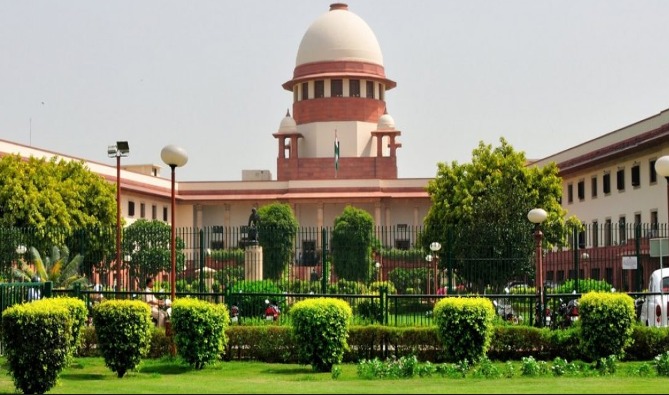
The Indian Union Muslim League informed the Supreme Court on Monday that the Bharatiya Janata Party (BJP) should be added as a respondent to a petition seeking to prohibit political parties from using religious names and symbols.
A bench comprising of Justice MR Shah and Justice CT Ravikumar was hearing the matter.
“We have also submitted an application to add a huge number of parties, including the Bhartiya Janata Party since its emblem is a “Kamal,” which is a religious symbol,” said Senior counsel Dushyant Dave, appearing on behalf of the Muslim League.
The Muslim League stated in their application that the lotus is a religious emblem associated with Hinduism and Buddhism.
It also wanted to include 26 other groups as respondents in the lawsuit, including the Shiv Sena, Shiromani Akali Dal, Hindu Sena, Hindu Mahasabha, Christian Democratic Front, Islam Party Hind, and others.
“According to Hinduism, the holy lotus spirit is within each individual. It is commonly used as a symbol of life, fertility, and ever-renewing youth, and denotes immortality, purity, and divinity. The lotus flower is associated with feminine attractiveness, particularly female eyes. The lotus flower represents the most exalted state of man, according to Buddhists: head raised high, clean and undefiled in the sun, feet planted in the world of experience. It is also claimed that the lotus flower is related with the Hindu gods Vishnu, Brahma, Shiva, and Lakshmi Mata,” the IUML application noted.
Former UP Shia Waqf Board Chairman Syed Waseem Rizvi (now Jitendra Narayan Singh Tyagi) filed the PIL, which presently has just two respondents: IUML and All India Majlis-e-Ittehadul Muslimeen (AIMIM).
During an earlier hearing, the Court stated that the petitioner’s approach should not be selective.
Appearing for AIMIM, former Attorney General of India and Senior Advocate KK Venugopal, questioned the petition’s viability.
He said that the petitioner’s basic rights had not been violated, and hence the petition under Article 32 was not viable.
Also, the petitioner has not followed the prior directive to include all political parties with religious titles, and thus the petition is likely to be rejected on that basis alone, he noted.
“He has only impleaded two parties with Muslim names,” Venugopal stated.
He further stated that a similar plea is now pending in the Delhi High Court.
Advocate Dave further backed Venugopal’s claim that the petitioner had not followed the earlier order.
In response to these comments, Senior Advocate Gaurav Bhatia, who represents the petitioner, argued that the opposing side was making a high number of erroneous statements.
He stated that the petition just asks for a directive to observe the terms of the Representation of Peoples Act and the decision in Abhiram Singh vs. C.D. Commachen.
The division bench adjourned the matter for four weeks, seeking that the contending respondents present a copy of the petition currently before the High Court in order to determine if the subject matter is the same.
It also stated that it will take preliminary objections into account.




